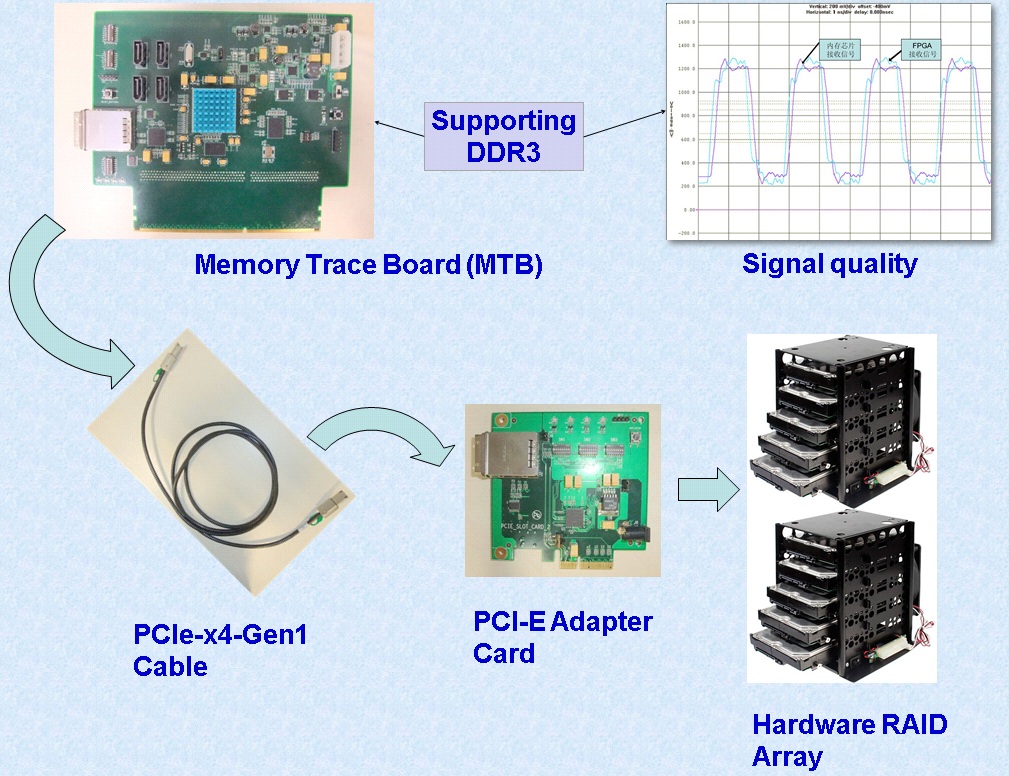Features
Supports DDR3 UDIMM/RDIMM/LRDIMM Interface on multiple platforms, e.g., Intel, AMD, Loongson
Be able to collect full system off-chip memory traces with semantic information, including commercial applications
Better signal integrity to support higher memory frequency signal acquisition
Works at DDR3-800 properly, partly supports DDR3-1600
Supported memory size can be up to 512GB
Uses PCI-Express cable to transport trace data, the peak bandwidth can achieve 8Gbps
Uses 5-disk hardware SSD RAID, providing at about 2000MB/s IO write bandwidth and 5TB storage space for offline memory trace
Cooperating with binary instrument software toolkit, we can further track memory traces with high level events
Supports linux 3.10.93
And more important: It is in use now!
Framework
Memory Trace Board (MTB)
Kernel Synchronization Module (KSMod)
Trace packets capture, storage and analysis Toolkit
[framework]
Hardware Design
Power supply
DDR3 gold-finger
DDR3 register
10 GE PHY
PCI-Express external cable gen2 x4
Xilinx Virtex-6 FPGA
Multi-board synchronization module (optional)
The FPGA Physical Block Diagram
[fpga]
HMTT Hardware Board
[board]
HMTT3 illustrate

A working photo for collecting trace from a Intel Xeon E5 V2 Server

Software Design
Kernel Synchronization Module (KSMod)
One module is added to alter the first page's cache attribution
Another module is a more important module which provides the hmtt_printk routine to collect page table information and to store the information in a kernel-user shared buffer
One kernel patch for pgtable.h records each update of page table
Another kernel patch for entry.S sends identifiers to MTB when kernel-enter and kernel-exit occur (optional)
Trace packets capture and analysis Toolkit
Memory Trace Board (MTB) Configuration
Trace Dumping, Storage and Replay
We had used HMTT3 to collect page table walk access ( All TLB miss access to page table.)